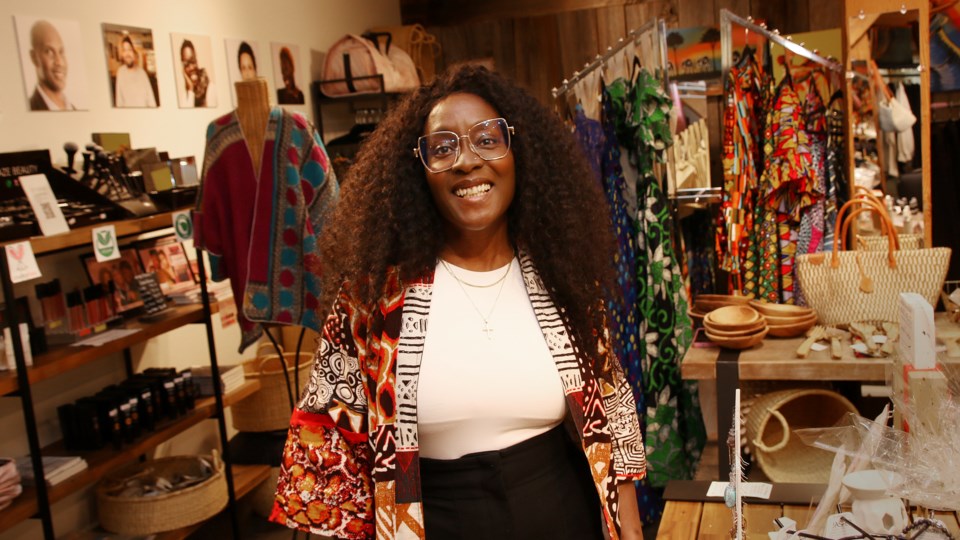Many of B.C.’s Black business owners say they are being “forced to price down” their products or services to make sales, while at the same time facing systemic racism and inequality.
It’s common trend across Canada. Nearly eight in 10 (79 per cent) Black business owners say they are undercharging, compared with 63 per cent of their non-Black peers, according to a survey released by Intuit QuickBooks during Black History Month in February.
The survey also shows that more than one in five (22 per cent) of Black-owned business owners said they had no plans to increase their prices within the next year or weren't sure if they would, despite bearing the brunt of inflation.
Lack of knowledge and training on proper price models and the smaller scale of Black-owned businesses are some of the factors that contributed to these entrepreneurs undercharging their offerings, according to Nerissa Allen, president and CEO of the Black Business Association of BC (BBABC).
"Many of our black businesses are micro businesses and don't have a lot of capital to create large inventory. So they're sourcing the supply chain at higher costs," she said.
BBABC has around 1,000 members in the province and runs U.E.L Market Place on Granville Island, which sells products from nearly 50 B.C.-based Black-owned businesses.
Allen said her organization is looking to help these businesses transition into more wholesale vending. But she said most businesses find it challenging, as it has a lower profit margin than retail, and they’d be operating at a loss.
“It means they have not appropriately priced their product, because you should be taking into account the ability to not just sell direct to consumers, but also the ability to sell B2B because that is another revenue stream.”
She said many business owners don’t factor in their labour costs when pricing their products, which has also resulted in prices lower than their worth.
Melat Hadera, CEO and founder of Vancouver-based Blaze Beauty, said she believes her products are priced 30-40 per cent lower than equivalent products offered by non-Black businesses.
“One of the main challenges with our product pricing is the lack of value on Black-owned businesses. I feel like Black-owned businesses get overlooked,” said Hadera, who operates a vegan, cruelty free and paraben-free cosmetics brand.
“It gets harder to attract potential customers that would actually value your brand and your cost structure even though you have the right price strategy that goes hand-to-hand with your brand identity. We get forced to price down. You see that a lot.”
Systemic inequality and racism curb Black business growth
Allen said many Black businesspeople are suffering from impostor syndrome as a result of systematic inequality and racism. She said this hinders them from raising prices or scaling up their businesses.
“Impostor syndrome is when people doubt their skills, talents and accomplishments … despite having external evidence of their competence,” she said.
“This had been linked to internalized trauma from direct racism and microaggressions. So we see in the service industry, many of the Black business service providers are not charging the rates for their services that their counterparts outside of the Black community do.”
Hadera said systematic inequality towards the Black community also makes customers and merchandisers, in many cases, undervalue products and services offered by Black businesses.
“If we tried to raise prices, then I'm going to have no sales. … Since I'm not getting as much as my product value, I'm basically forced to wear multiple hats in my business myself,” she said.
Although securing financing is challenging for small businesses in general, it appears to be more difficult for Black business owners, according to Hadera, who said her financing applications were rejected or ignored.
And many Black entrepreneurs are not applying for funding support due to a lack of knowledge or confidence, or a lack of time when juggling a business of their own as well as holding down another full-time job, according to Allen.
“One of the things that we don't do well in the Black community is ask for help, because of the racism that has been intrinsically embedded in financial institutions and how many of our people are treated, and how they feel they're going to be treated when they approach financial institutions,” she said.
“They either don't approach them, or they're very hesitant and scared about doing so.”
Allen is calling for British Columbians to support local Black businesses and small businesses in all communities.
“I don't think there's any community that's looking for hand-outs, people just want to contribute to the communities that they live, work and play,” she said.
“Much of our businesses represent our culture. You are supporting a business but you're also learning about a culture. And people become more inclusive in terms of being open to other cultures when they understand and learn about those cultures.”



